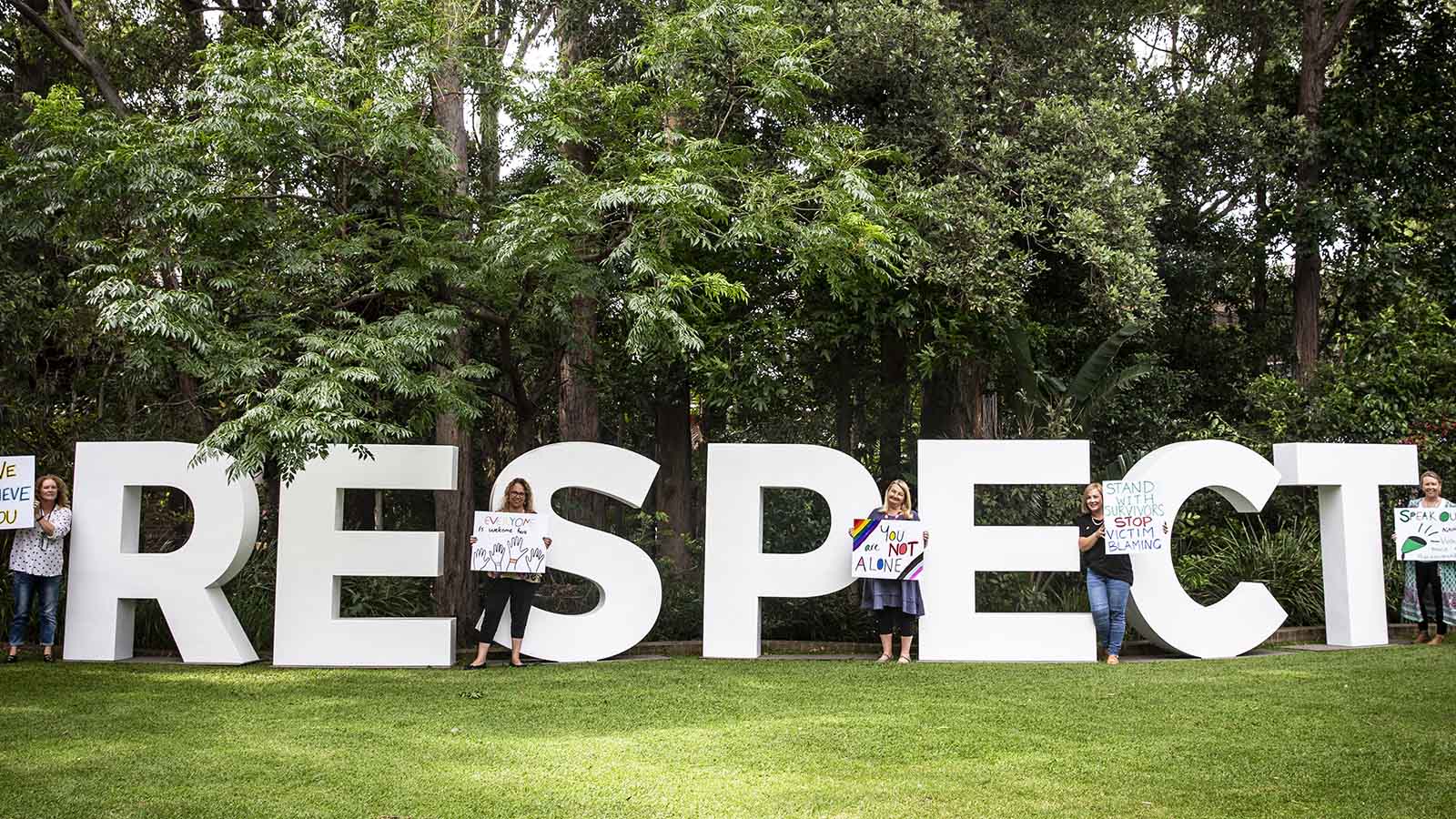November 3, 2023
When it comes to creating safe communities, universities are part of the solution
Education is part of the solution. But sexual harassment and assault is a society-wide problem and needs a society-wide approach
The issue of sexual assault on university campuses may be a hot-button issue in Canberra right now, but it’s been front of mind for universities, including the University of Wollongong (UOW) for some time. Challenging societal and gender-based norms is part of the DNA of universities globally. Moreover, research on how to not only measure but address this problem is an important focus.
The Change the Course report in 2017 uncovered an alarming rate of sexual harm reports across the sector. This was reiterated in the 2022 National Student Safety Survey, which made it clear that all universities need to do better. This finding is not in isolation, but part of the alarming crisis of domestic violence and sexual harm perpetration in our society.
The issue was recently highlighted again by a Senate Committee and called out in the interim report of the University Accord, which set out to outline a vision for the future of Australian higher education. Currently there is a debate about whether we need a national student ombudsman and how far their powers and remit should extend.
The University of Wollongong would welcome additional oversight if it creates a joint commitment and consistent response across the sector. We believe this investment would complement the good work we are already doing.
Our dedicated Safe and Respectful Communities (SARC) team is at the frontline of support for students and is implementing UOW’s action plan to address sexual harm in our university community.
The team provides tailored support to victim-survivors of sexual harm, investigates reports of sexual assault and harassment, and leads education and preventative work on campus.
The SARC team recently released its first annual report, delivering a transparent account of the initiatives we’re undertaking to make a meaningful and lasting change. The report revealed an increase in reports of sexual assault and sexual harassment from 22 in 2021 to 183 in 2022.
At first glance, this looks like an alarming increase but it is important to remember that incidents of sexual harm are underreported across society and that one of the key findings of the National Student Safety Survey was that students didn’t know how to report incidents.
We are working hard to change that- of those 183 reported incidents, 122 occurred more than a year prior.
And of those incidents where we have data, almost 70 per cent happened off-campus. Which is not to disown responsibility for them but to highlight that this is a society-wide problem and needs a society-wide approach. Our responsibility goes beyond the entrance to our campus, and we give support to students regardless of when or where incidents occurred. We also recognise the power of education to challenge gender-based norms, create awareness and create opportunities,
Our SARC team has forged close ties with local support services such as NSW Police, Domestic Family Violence and Sexual Assault Service, and Illawarra Women’s Centre and is actively engaged in external programs targeting harmful behaviour on public transport and in local licensed venues.
Although gender-based violence in universities reflects experiences of violence in the general community, universities have a unique opportunity to shape and empower the next generation of leaders to be active participants in changing the culture of violence against women and gender, sex and sexuality diverse people.
The ongoing support SARC provides to victim-survivors includes academic consideration (university speak for minimising impact on marks), personal safety plans, and referrals to UOW counselling, legal clinic, student advocacy and other services, without the need to retell traumatic experiences.
They also assist with reporting to police, victims’ services payments applications and counselling, and other community-based support.
At UOW, we are working hard to create a safe and respectful community for all students and staff – because we are part of the solution, and we are not alone among universities. However, we are unable to address all the complexities of gender-based violence in isolation and would like to work in partnership with our political representatives and other key stakeholder to address this complex matter. This is an issue receiving immediate attention from Australian universities.
We’ve come a long way, but we still have much further to go, because universities are a microcosm of society. A society in which, research shows, the true scale of sexual violence is sadly underestimated as well as embedded norms, stigma, alienation and marginalisation.
I welcome the Federal Government and Minister Jason Clare’s focus on this issue.
The day the sun rises over a sexual violence-free community would be a good day indeed. Until that day comes, UOW will continue to enhance support for victim-survivors and sustain an integrated approach to this issue covering prevention, support, response and education.
Professor Patricia Davidson, Vice-Chancellor and President of the University of Wollongong
This article was first published in The Australian.
